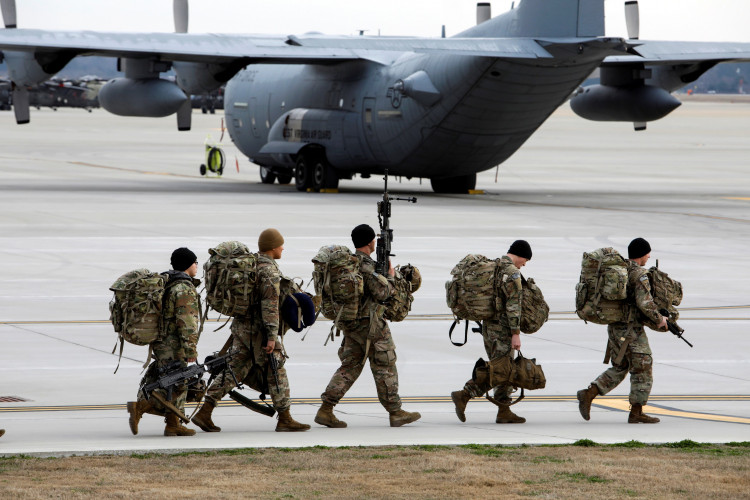The U.S. predicts an attack on Taiwan by China within the next five years. Meanwhile, a top general in China says war against the U.S. is the inevitable result of great power conflict.
The U.S. will build a network of mobile anti-access/area-denial missile sites capable of precision strikes against the People's Liberation Army Navy inside the "first island chain" to repel attacks.
The "first island chain" is the main archipelago from east Asia's continental mainland and generally seen as consisting of the Kuril Islands, the Japan archipelago and Ryukyu Islands, Taiwan, the northern Philippines and Borneo.
The U.S. has "grave concerns about the geopolitical situation in the region over the next six years," according to Adm. Philip S. Davidson, commander of U.S. Indo-Pacific command. The U.S. sees this period as one where China might look to change the status quo in the Indo-Pacific by force - especially Taiwan.
Davidson said there was "a fundamental understanding that the period between now and 2026...in which China is positioned to achieve overmatch in its capability and when Beijing could, could widely choose to forcibly change the status quo in the region."
"And I would say the change in that status quo could be permanent," he told a forum hosted by Washington, D.C. research group American Enterprise Institute.
Meanwhile, China's Air Force Senior General Xu Qiliang, one of two vice chairpeople of China's central military commission, wants more money for the military.
China's army is the world's largest - with more than 2 million personnel. Xu called for technological advancements to make the People's Liberation Army to parity with the U.S.
"We must make breakthroughs in combat methods and ability and lay a sound foundation for military modernization," Xu said.
Xu sees a war against the U.S. as a result of the "Thucydides Trap" - a historical concept describing the inevitability of war when a new world power like China confronts an existing power for supremacy.
Xu said China will soon overtake the U.S. as an economic power, with its gross domestic product now more than 70% of its rival.
Xu is subordinate only to China's leader Xi Jinping.
China boosted its defense budget in 2021 to $209 billion, according to a statement Friday. This year's military spending is 6.8% larger than the $179 billion package for 2020. China earmarked $184 billion for military spending in 2019 and $172 billion in 2018.
Meanwhile, the U.S. 2021 National Defense Authorization Act includes the Pacific Deterrence Initiative which allocates $2.2 billion for regional security in 2021.
The deterrence initiative is structured to "focus resources on vital military capabilities to deter China," according to the defense act.
"The requirements outlined in this report are specifically designed to persuade potential adversaries that any preemptive military action will be too costly and likely to fail by projecting credible, combat power at the time of crisis," it says.
"The greatest danger to the future of the U.S. continues to be an erosion of conventional deterrence," according to the defense act. "Without a valid and convincing conventional deterrent, China is emboldened to take action in the region and globally to supplant U.S. interests. As the Indo-Pacific's military balance becomes more unfavorable, the U.S. accumulates additional risk that may embolden adversaries to unilaterally attempt to change the status quo."
The U.S. will build missiles sites along the first island chain. U.S. military experts say the first island chain is the most effective point to counter any invasion of Taiwan.
The U.S. Navy will blockade the first island chain in the event of a war between China and the U.S. This blockade will allow the U.S. to prevent China from entering the western Pacific and Guam.






